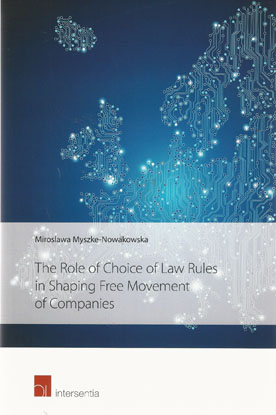
This book responds to the current intriguing questions concerning the impact of the choice of law rules on the free movement of companies by analysing the most recent ECJ decisions, EU legislature and doctrine. It addresses vigorous discussions and a multitude of legal issues concerning European company law, comparative law and private international law in way that is useful both for the legal practitioners and academics.
The author studies in great detail the ECJ’s attitude towards the different connecting factors in private international law. This analysis is developed through a functional presentation of the case law concerning the distinction between the transfer of the real seat on the one hand and the registered office on the other. This method emphasises the consistent approach of the ECJ as well as ensures a clear functional analysis of both immigration and emigration of companies.
In view of this background, the existing harmonisation measures as well as the planned directives and regulations (the company law directives and supranational company forms like the European Company and the planned European Private Company) are also outlined.
The author furthermore advocates an active harmonisation process. Apart from the European level, the legal doctrines from several Member States are discussed as well. All this provides a wide and up-to-date picture of current European company law and how it is shaped by private international law.